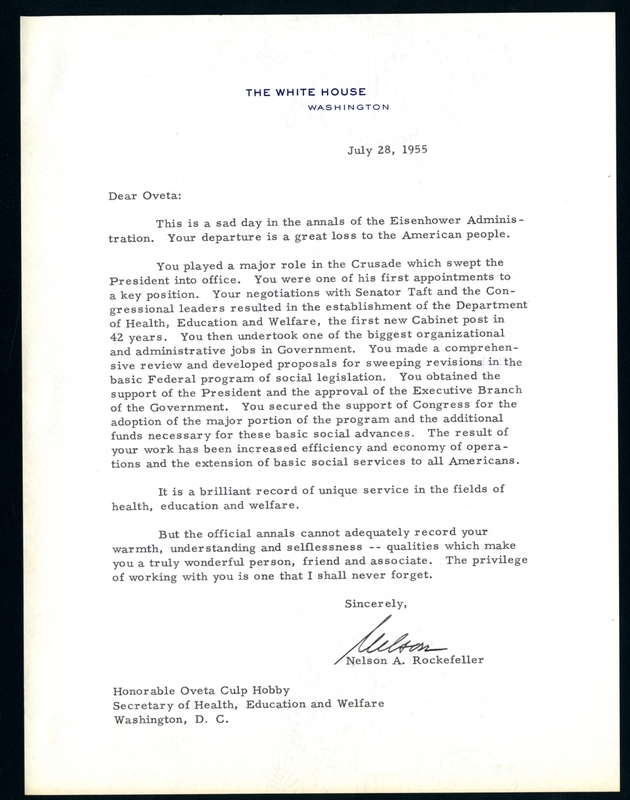Epilogue
When Oveta Culp Hobby left her office, everyone who had worked with her was sad to see her go and they all recognized the tremendous impact she had as the first secretary of the department of health, education, and welfare. After President Eisenhower accepted Hobby’s resignation, he spoke of what others in the administration thought of her leaving, “‘What? The best man in the Cabinet?’”1 This sentiment toward Hobby was felt across the board. Many who worked with her, admired her (Figure 1).
After returning to Houston, Texas, her husband’s health improved. Both of them returned to their work at the Houston Post. The two worked together in often adjacent offices to put together the newspaper. As head of a newspaper, Oveta was much freer to follow civil rights movements and comment on them compared to her role as a public servant in the Eisenhower administration. Oveta, as well as many other prominent figures in Houston, worked on desegregating public facilities. When Oveta learned that intense white segregationist response was triggered by news reports on integration, she would not let her staff publish a single story about integration in Houston.2 As a member of the board of trustees at Rice University, she also voted for integration of the campus.3 Besides her work in civic engagement, she was also asked by President Johnson to serve on several consultation positions to the administration. However, she never returned to Washington as a full-time public servant.4 As Oveta grew older, she restricted her circle to only family and close friends. She died at age 90 and even at her funeral, her eulogy was one that she composed herself.5 Oveta Culp Hobby left her position as secretary to continue to lead Houston, changing the city in ways that she could not the administration.
